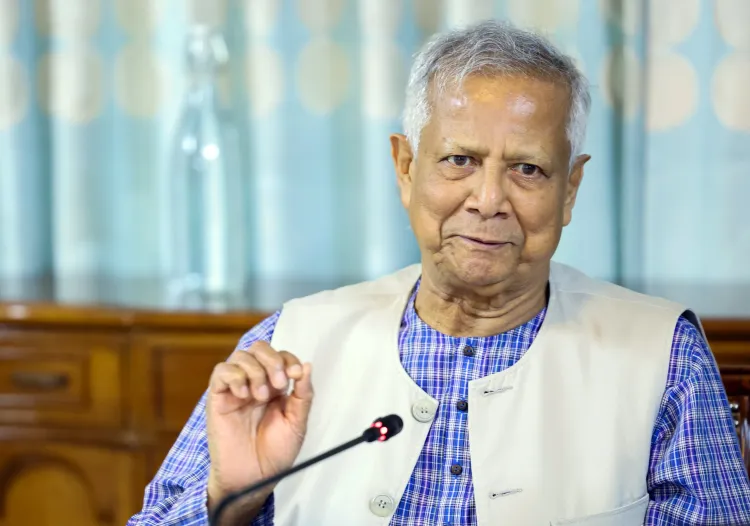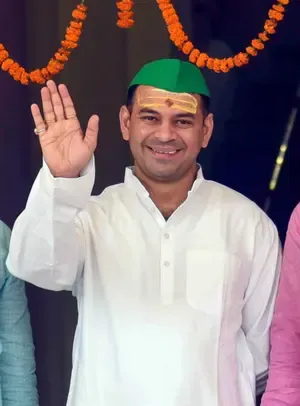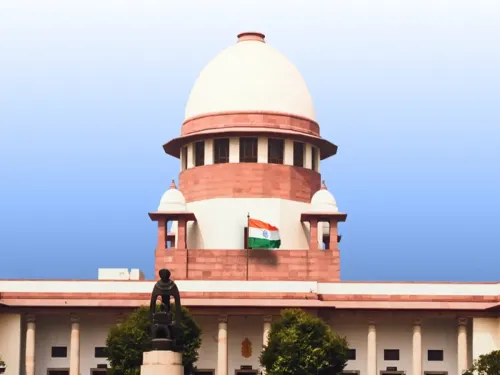Is Bangladesh's Silence a Strategic Move Amid India's Operations in Pakistan?

Synopsis
Key Takeaways
- Bangladesh's silence is a strategic maneuver in the face of regional tensions.
- Operation Sindoor highlights India's military response to terrorism.
- Internal politics may be overshadowing crucial national security issues.
- Bangladesh's military emphasizes the importance of preparedness.
- Geopolitical dynamics in South Asia are increasingly complex.
Dhaka, May 8 (NationPress) As tensions escalate across South Asia after India's precise strikes on terror camps in Pakistan and Pakistan-occupied Kashmir (PoK) under Operation Sindoor, the interim government of Bangladesh, headed by Muhammad Yunus, has opted for a stance of calculated silence, avoiding any direct commentary regarding the operation or India's response to the April 22 Pahalgam terror attack.
While nations around the globe — from Washington to Beijing — have urged for restraint amidst Islamabad's provocative rhetoric, Bangladesh has been cautious, aiming to present itself as an observant mediator. Foreign Advisor Touhid Hossain issued a succinct statement, urging both India and Pakistan to "exercise restraint" and engage in dialogue. He mentioned that Pakistan's Deputy Prime Minister and Foreign Minister Ishaq Dar contacted him on May 5 to provide Dhaka with Islamabad's perspective on the ongoing regional tensions. "We desire peace. We want to avoid conflict here," Touhid expressed during a press briefing on May 6.
Experts believe that Bangladesh’s ambiguity serves a strategic purpose, enabling it to balance its increasing ties with Pakistan since August 2024 while steering clear of direct conflict with India. The Yunus administration's connection with the pro-Islamist Jamaat faction and rumored support from the ISI further complicates this balancing act.
This ambiguity also surfaced within the National Citizen Party (NCP), the student-led political entity associated with the interim government. NCP leaders Nahid Islam and Akhter Hossain voiced concerns about national security on social media, asserting that India's actions could destabilize the region, subsequently issuing a press release attributing blame to "Awami League fascists". Analysts perceive the NCP's response as more focused on internal politics than addressing the regional terror threat that prompted India's retaliation.
Concerns have also been raised regarding Bangladesh potentially becoming a hub for Pakistani terror networks, citing the freedoms enjoyed by extremist factions under Yunus's leadership. Meanwhile, NCP leaders have remained mute on crucial national matters — including collaboration with Myanmar's Arakan Army, controversial border concessions like St. Martin’s Island, and the transfer of port control to foreign entities.
However, Bangladesh's military appears to be taking these threats seriously. On April 30, during the Akash Bijoy 2025 military exercise, Yunus remarked, “India and Pakistan stand on the verge of conflict… failing to prepare is essentially suicidal.”
Despite this, the government's response — or lack thereof — to Operation Sindoor raises significant concerns regarding Dhaka’s current geopolitical stance and internal stability, as New Delhi continues to observe closely.









